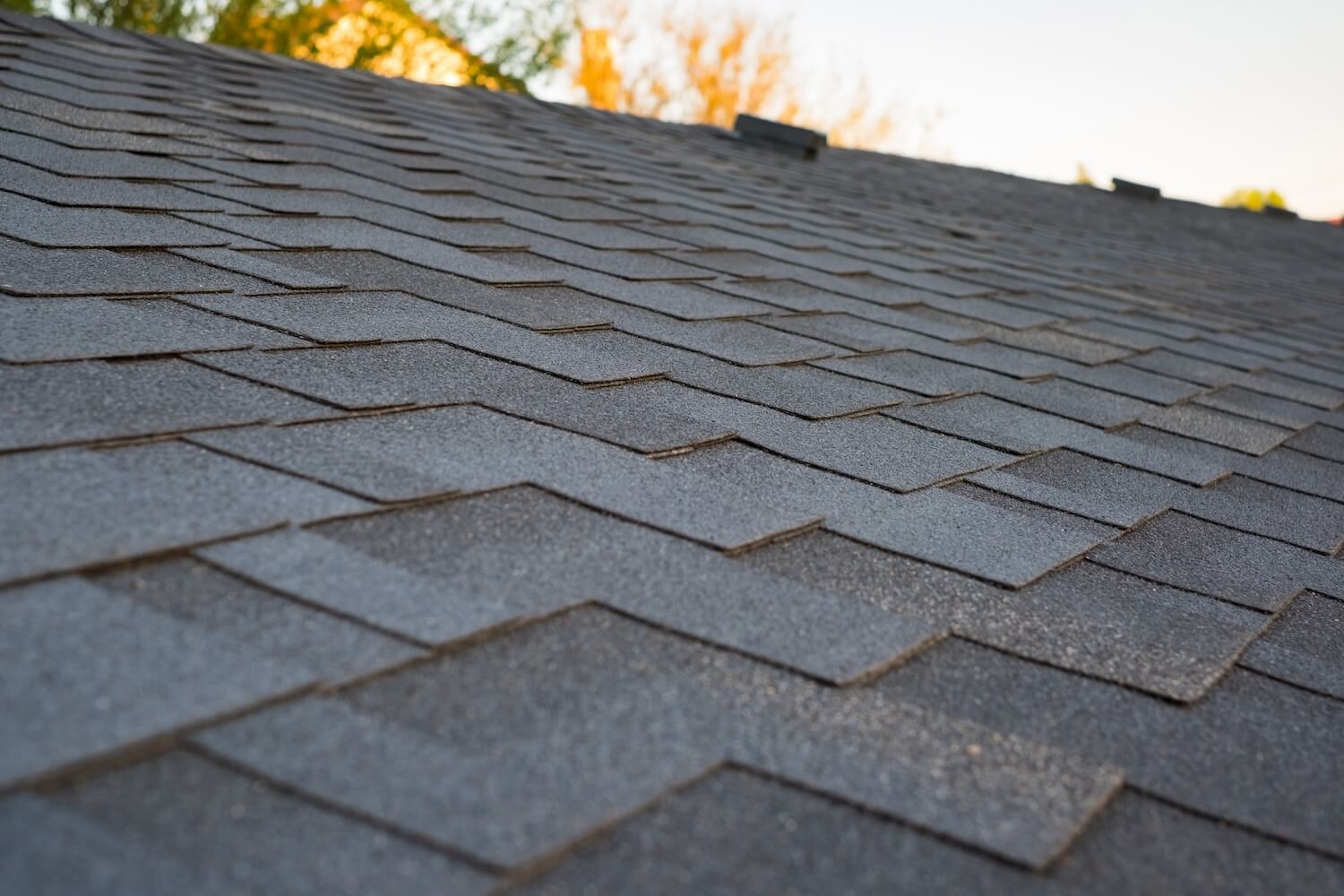Roof damage can be a homeowner’s worst nightmare. Whether it’s due to a severe storm, falling debris, or simply the wear and tear of time, a damaged roof can lead to significant expenses. Fortunately, many homeowners insurance policies cover roof repairs under specific circumstances. Filing a roofing insurance claim doesn’t have to be a daunting task. Here’s a step-by-step guide to help you navigate the process the easy way.

1. Assess the Roof Damage
The first step in filing an insurance claim for roof repairs is to thoroughly assess the damage. After a storm or event that could have caused damage to your roof, conduct a visual inspection from the ground. Look for:
- Missing or damaged shingles
- Cracked or curling shingles
- Leaks or water stains on the ceiling or walls
- Damage to gutters, vents, or flashing
If it’s safe to do so, you may want to climb onto your roof for a closer inspection. However, always prioritize safety and consider hiring a professional roofer to assess the damage if needed.
2. Review Your Insurance Policy
Before filing a claim, review your homeowners’ insurance policy to understand what is covered and what is not. Pay attention to:
- Coverage limits for roof repairs
- Deductible amount
- Any exclusions or limitations
Understanding your policy will help you determine if filing a claim is worthwhile and what steps to take next.
3. Document the Roof Damage
Documentation is crucial when filing an insurance claim. Take photos and videos of the damage from multiple angles. This visual evidence will help support your claim and provide the insurance company with a clear understanding of the extent of the damage.
Additionally, keep records of any correspondence with your insurance company, including emails, phone calls, and written letters. Note down the date, time, and details of each interaction for future reference.
4. Contact Your Insurance Company
Once you’ve assessed the damage and reviewed your policy, it’s time to contact your insurance company to file a claim. Most insurance companies have a 24/7 claims hotline, so you can report the damage as soon as it occurs.
When speaking with your insurance company, be prepared to provide:
- Your policy number
- Date and cause of the damage
- Description of the damage
- Estimated repair costs
Be honest and accurate when providing information to ensure a smooth claims process.
5. Schedule a Roof Inspection
After filing a claim, your insurance company will likely schedule an inspection of the damage. The insurance adjuster will assess the roof’s condition and determine the extent of the repairs needed.
It’s a good idea to be present during the inspection to answer any questions and provide the adjuster with your documentation and evidence of the damage. This will help ensure that the inspection is thorough and accurate.
6. Obtain Roof Repair Estimates
Once the inspection is complete, obtain repair estimates from reputable roofing contractors. Most insurance companies require at least two or three estimates to validate the cost of repairs.
Provide the estimates to your insurance company for review and approval. Your insurance company will either approve the estimates or negotiate a fair settlement amount based on the policy coverage and the adjuster’s assessment.
7. Review the Roofing Settlement Offer
After reviewing the repair estimates, your insurance company will provide a settlement offer to cover the cost of the roof repairs. Carefully review the offer to ensure it’s fair and covers all necessary repairs.
If you disagree with the settlement offer, don’t hesitate to negotiate with your insurance company. Provide additional evidence or quotes if needed to support your claim and request a higher settlement amount if necessary.
8. Hire a Reputable Roofing Contractor
Once the settlement offer is approved, hire a reputable roofing contractor to complete the repairs. Make sure the contractor is licensed, insured, and experienced in roof repair work.
Before work begins, review the contract carefully to ensure all repair work is included in the scope of work, including materials, labor, and cleanup. Keep all receipts and documentation related to the repairs for your records and future reference.
9. Complete the Roof Repairs
Coordinate with your roofing contractor to schedule the repairs at a convenient time. During the repair process, monitor the work to ensure it meets your satisfaction and complies with the agreed-upon scope of work.
Once the repairs are complete, inspect the roof with your contractor to ensure all repairs have been completed to your satisfaction. If any issues arise, address them immediately with your contractor to resolve them promptly.
10. Submit Final Documentation to Your Insurance Company
After the repairs are complete, submit all final documentation, including receipts, invoices, and before-and-after photos, to your insurance company. This will help expedite the reimbursement process and ensure you receive the full settlement amount as approved.
Hiring a Roofing Company to Help You File a Claim: Why They’re the Experts You Need
Navigating the insurance claim process for roof repairs can be complex and time-consuming, especially if you’re not familiar with the intricacies of insurance policies and claim procedures. That’s where hiring a reputable roofing company can make all the difference. Roofing companies specialize in roof repairs and replacements, and many have extensive experience working with insurance companies to file and negotiate claims on behalf of homeowners. Here’s why hiring a roofing company to help you file a claim is a smart decision:
Expert Knowledge and Experience
Roofing companies have a deep understanding of roofing materials, repair techniques, and the common causes of roof damage. This expertise allows them to accurately assess the extent of the damage, provide detailed repair estimates, and advocate for the necessary repairs to be covered by your insurance company.
Assistance with Documentation
Proper documentation is crucial when filing an insurance claim. A roofing company can help you compile all the necessary documentation, including photos, videos, repair estimates, and invoices. They know what information insurance companies require to process claims efficiently and can ensure that your claim is supported by comprehensive and accurate documentation.
Negotiation Skills
Roofing companies have experience negotiating with insurance adjusters to ensure homeowners receive a fair settlement for their roof repairs. They can present the evidence of the damage, provide detailed repair estimates, and advocate for additional repairs or upgrades if needed. Their negotiation skills can help maximize your insurance claim payout and ensure that all necessary repairs are covered by your policy.
Seamless Communication with Insurance Companies
Roofing companies often have established relationships with insurance companies and claims adjusters. They know how to communicate effectively with insurance company representatives, understand insurance terminology, and navigate the claims process with ease. This seamless communication can help expedite the claims process, resolve any issues or disputes that arise, and ensure a smooth and successful outcome for your roof repair claim.
Quality Workmanship and Guarantees
When you hire a reputable roofing company to complete the repairs, you can rest assured knowing that the work will be done to high-quality standards. Many roofing companies offer warranties or guarantees on their workmanship, ensuring that any repairs are completed correctly and will last for years to come. This peace of mind is invaluable and can save you from future repair expenses and headaches down the road.
How to Choose the Right Roofing Company
When hiring a roofing company to help you file an insurance claim, it’s essential to choose a reputable and experienced contractor. Here are some tips to help you find the right roofing company for your needs:
- Check Credentials: Ensure the roofing company is licensed, insured, and certified by manufacturers to install their roofing materials.
- Read Reviews and Testimonials: Research the company’s reputation by reading online reviews, and testimonials, and checking their rating with the Better Business Bureau (BBB).
- Ask for References: Request references from past customers and contact them to ask about their experience working with the roofing company.
- Get Multiple Estimates: Obtain estimates from several roofing companies to compare pricing, services offered, and the scope of work.
- Review the Contract: Before hiring a roofing company, review the contract carefully to ensure all terms, warranties, and guarantees are clearly outlined and agreed upon.
Conclusion
Filing an insurance claim for roof repairs may seem overwhelming, but by following these easy steps, you can navigate the process with confidence and ease. Remember to assess the damage, review your policy, document the damage, contact your insurance company, schedule an inspection, obtain repair estimates, review the settlement offer, hire a reputable contractor, complete the repairs, and submit final documentation to your insurance company.
By being proactive, organized, and thorough, you can ensure a smooth and successful insurance claim process and get your roof repaired quickly and efficiently.










